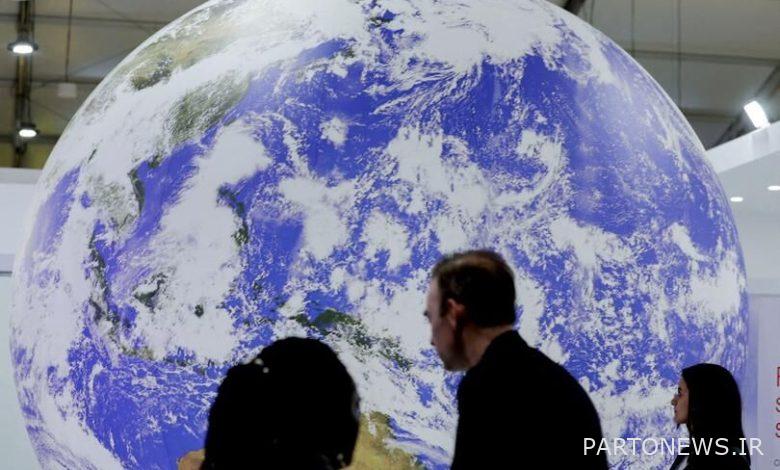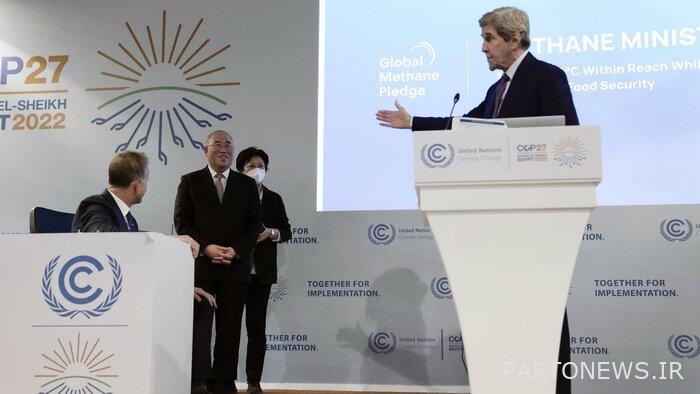Sharm al-Sheikh’s ax to the ground

The 27th United Nations Climate Change Conference (COP27) in Sharm el-Sheikh, Egypt, which was supposed to end last Friday, continued until Sunday due to disagreements and not reaching a consensus.
The representatives of the countries continued their deliberations until a very difficult agreement was reached, or finally a fund was created to help poor and affected countries against climate disasters, but in this long meeting, there was no mention of increasing efforts to deal with the emission of greenhouse gases.
Despite the establishment of a support fund, the lack of consensus on increasing efforts to reduce greenhouse gas emissions in line with the goal of limiting global warming to 1.5 degrees Celsius was disappointing, and according to Germany, the outcome of the 27th meeting was a combination of “hope and It brought “disappointment”.
Referring to the report read by the ministers at this meeting, Irish Environment Minister Eamon Ryan warned that if the world warms by 2 degrees instead of 1.5 degrees Celsius, 420 million people will face extreme heat and 270 million People will experience water shortage.
However, it seems that the interests of some countries have not allowed to address the issue of greenhouse gas emissions, which is considered the most important threat to the planet. Frans Timmermans, the vice president of the European Commission, also did not consider the resulting agreement to be sufficient for a forward movement for humans and the planet. He also pointed out that the agreement did not create any additional obligations for the main producers of greenhouse gases to reduce pollution.
UN Secretary General Antonio Guterres also emphasized at the end of this meeting: Our planet is still in the emergency department. We need to drastically reduce emissions, and this is something that this climate change conference did not mention.
The interests of countries in not reducing greenhouse gas emissions
Saudi Arabia is one of the countries that have obstructed the agreement on the control of greenhouse gases. In this regard, Riyadh has distinguished itself from others by relying on the solution of carbon sequestration and its storage, while according to scientists, this is not the only solution for the climate crisis.
The Guardian newspaper wrote about this that Saudi Arabia, the second oil producer in the world, which has approximately 15% of the world’s production, announced its plan at the United Nations Climate Change Conference in Egypt, which will be implemented in partnership with Aramco and with a capital of 42 billion dollars. will be.
Saudi Energy Minister Abdul Aziz bin Salman has announced that the Carbon Separation and Storage Center will start working in 2027 and initially 9 million tons of carbon dioxide will be separated and stored per year.
The English newspaper added: Some are worried that this method is a way for fossil fuel companies to continue to pollute. Some others also doubted the validity of Saudi Arabia’s carbon storage and separation plan. Also, focusing on this technology in relation to the reduction of fossil fuel consumption has been met with widespread pessimism by observers.
Despite the Saudis’ vision of decentralizing oil revenues and diversifying economic activities, they still prioritize earning money from energy sources and consider it a relative advantage. Therefore, considering Riyadh’s economic interests in this field, it is natural for them not to cooperate in order to achieve the goal of reducing global warming.
The Financial Times wrote that several negotiators from Western nations He blamed the oil and gas producing countries led by Saudi Arabia for not being productive. they knew
One of the architects of the Paris climate agreement also believes that Egypt, as the host country, presented a text in this summit that specifically supports oil and gas producing countries and fossil fuel industries.

Some media, including CNN, claimed that China is the largest producer of greenhouse gases in the world, after a number of countries, including China and Saudi Arabia, blocked the proposal to phase out all fossil fuels, not just coal. efforts to address the largest source of greenhouse gas emissions have failed.
On the other hand, the European countries that faced the energy crisis and the sudden increase in gas prices after the war in Ukraine, once again turned to fossil fuels due to the lack of sufficient infrastructure to produce electricity from renewable energies. According to a July report by the European Union’s statistics office Eurostat, the use of fossil fuels in member states in 2021 is once again at the top of priorities due to rising prices.
Now these days of the green continent with the current situation of the war in Ukraine and the Russian energy embargo have worsened compared to last year, and things have reached a point where some countries have turned to coal again. Last July, German Chancellor Olaf Schultz announced the launch of 16 inactive fossil fuel power plants and the extension of operating licenses for 11 other power plants due to concerns about a further decrease in natural gas imports from Russia. Therefore Due to the difficult conditions of today and possible future, Europe is not in its interest to take steps to reduce greenhouse gas emissions.
However, Ursula von der Leyen, the head of the European Union Commission, claimed that the 27th conference kept the 1.5 degrees Celsius goal alive despite the criticism of the results of this year’s meeting. He also expressed his satisfaction that the UN Climate Change Summit created a new chapter for financial support for climate damages.
Even though the final statement of the Egypt conference did not set a target for reducing greenhouse gas emissions, US climate representative John Kerry repeated von Derlein’s position and said: “Don’t be mistaken.” We kept the hope of 1.5 (grade) alive. In other fields, including political issues, the United States does not hesitate to put pressure on other countries to achieve its desired goal, but this time, it seems that the interest of this country was not in reducing carbon dioxide.
America, as the second largest producer of greenhouse gases in the world, withdrew from the Paris climate agreement during the administration of Donald Trump, and found it useless to pay for this agreement and adhere to its provisions, because they still use coal as a fossil fuel. They benefit significantly and they supplied 22% of their electricity in 2021 in this way.

No way back and forth
The final statement of the 27th United Nations Climate Change Conference in Egypt showed that the international community actually does not have enough determination to save the earth despite the plans that seem to be very serious in these circles. Many reasons can be put forward in this regard, but the most important of them is the lack of infrastructure for alternative (renewable) energy and the interests of lobbies and companies active in the field of fossil fuels, which do not allow a workable action.
Hence, the mentioned cases will have an impact on the economy of countries that produce greenhouse gases, and there is no desire to implement operational plans in order to reduce greenhouse gases. Also, the countries that produce fossil fuels cannot ignore the huge amount of energy they bring to their economy.
According to the Financial Times, many of the world’s largest fossil fuel producers have managed to thwart bold measures to reduce pollution despite the European Union’s threat to withdraw from the meeting.

Some members at the conference expressed concern over the weakening of pollution reduction plans and the implementation of the 2015 Paris Agreement to keep the global average temperature below 2 degrees Celsius, or ideally below 1.5 degrees Celsius. The average global temperature has increased by at least 1.1 degrees Celsius.
Therefore, with all the interpretations, due to the complex situation of the energy crisis in the world and the financial profit of the countries with energy resources from their sale, the policy of the governments has turned the decision about reducing the emission of greenhouse gases into a confusing mess.
In this way, the 40-hour final session of the climate change conference, in which, according to Guterres, the decision to switch to renewable energy could be the way out of the climate hell, could not meet the majority’s demand, and the eyes were still turned to the future to save the earth. .


